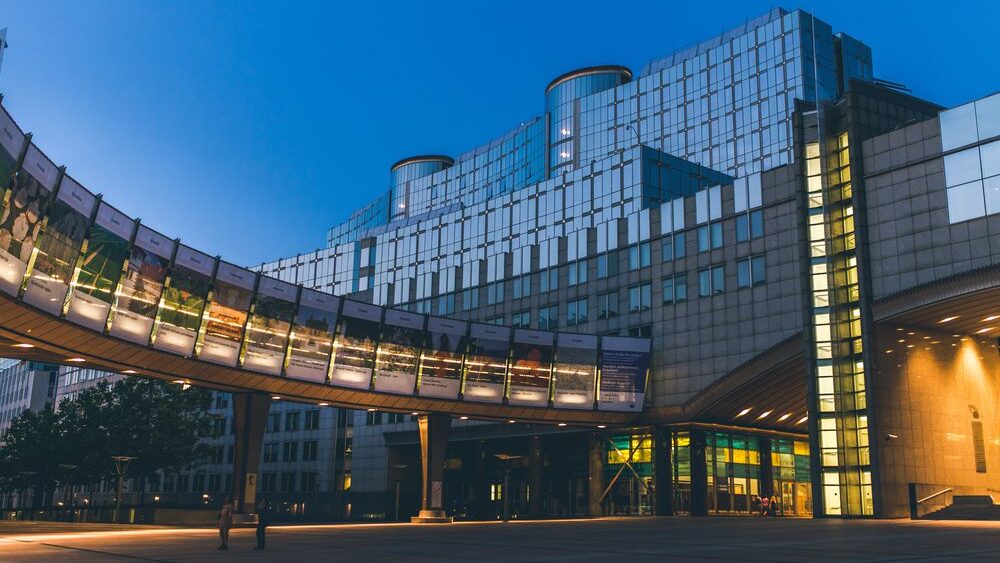
Photo: sashk0 / Shutterstock.com
Since the next European elections are just half a year away, Eurocrats might want to pay close attention to what the people of Europe feel when they think of Brussels.
Europeans are largely dissatisfied with the state of democracy in Brussels and believe there is an increasing gap between EU institutions and the citizens they are supposed to represent, a new Ipsos poll, conducted in five EU member states, shows. Low confidence in the EU institutions could result in a low voter turnout in the 2024 elections, which could increase the level of distrust in the European Union even more.
The September survey was taken in France, Italy, Poland, Sweden, and Croatia, as well as two non-EU countries, the U.S. and the UK—both of which will also hold general elections in the coming November and January 2025, respectively. The online probability survey questioned people aged 16 and older in European countries, and 18 and older in the United States.
While the Europeans surveyed are generally in favor of the EU as a concept, they are much more dissatisfied with the state of democracy in the Union than on the national level.
The majority of respondents in all surveyed EU countries say they are “dissatisfied state of democracy at the EU level, with only a tiny minority feeling that they have any say in how decisions are made. The largest share of people who believe they have at least some influence over EU matters is in Poland, but even there it tops out at 20%.
“These findings suggest that a key challenge for the EU ahead of the 2024 European Parliament elections will be to leverage continuing support for the EU project to help restore positive perceptions of EU institutions, agencies, and bodies,” Christine Tresignie, managing director of Ipsos European public affairs, said in a statement.
New @Ipsos poll: three in four Europeans are dissatisfied with #democracy at #EU level. pic.twitter.com/Yh84O1VkHe
— Tamás Orbán (@TamasOrbanEC) December 11, 2023
It is no surprise that only those parties who wish to restore democratic control over the EU and increase national sovereignty are ahead in the polls, while everyone who benefits from the current status quo stagnates or is predicted to lose dozens of seats. But why does the EU feel increasingly undemocratic?
The lack of transparency and the suspected widespread corruption within the EU institutions (think Qatargate or Pfizergate) might play a major role in why Europeans increasingly mistrust Brussels. Even the European Ombudsman—whose office was created to hold EU institutions to the minimum transparency standards—has recently had to call for media action against the Commission as it completely ignores her findings of “maladministration” and calls to release potentially incriminating documents.
“The nature and scale of the maladministration I have found requires a broader public debate and close parliamentary scrutiny as the normal institutional exchange and dialogue has not managed to resolve the problem,” EU Ombudsman Emily O’Reilly said in Brussels last week.
Another factor might be the complexity of the EU’s decision-making process, as the feeling of democratic control gets easily lost in Brussels’ giant bureaucratic labyrinth.
While it’s true that the members of the European Parliament are directly elected, the composition of the chamber often requires broad coalitions between party groups to get anything done. For instance, the nominally center-right EPP has voted together with the socialists (S&D), liberals (Renew), and Greens in nearly 9 out of 10 cases in the past 5 years—which might not be too easy to stomach for their otherwise conservative voters.
The other two institutions can be even more problematic. Commissioners and jobs are chosen by all member states, but the negotiations are mostly made up of bigger ones strong-arming the others until we’re stuck with the likes of von der Leyen. In theory, the Spitzencandidat system could make the process more direct, but it would hardly benefit anyone but the EPP, who already holds most top jobs.
The Council, on the other hand, is the last true bastion of democracy in Europe, most major decisions require unanimous approval of all member states. This too, however, is under constant attack now, as several initiatives have been put forward to scrap unanimity (and therefore, veto rights), essentially disenfranchising national electorates.
According to the survey, respondents do not have much trust in their democratic institutions back home either. Nearly all of the seven countries included in the scope of the poll reported 50% or lower satisfaction levels with democracy, with only Swedes being more-or-less content with how their government works, at 58%.
Furthermore, the widespread opinion in all surveyed countries is that the state of democracy has been in decline in the past years. This opinion is shared by over 6 in 10 Brits and nearly 7 in 10 Americans, with the highest number being in France, where 73% said democracy today does not work as well as it did 5 years ago.
The majority in all countries agreed that democracy is “rigged” in favor of the rich and powerful, and that “radical change” is needed to fix that.
